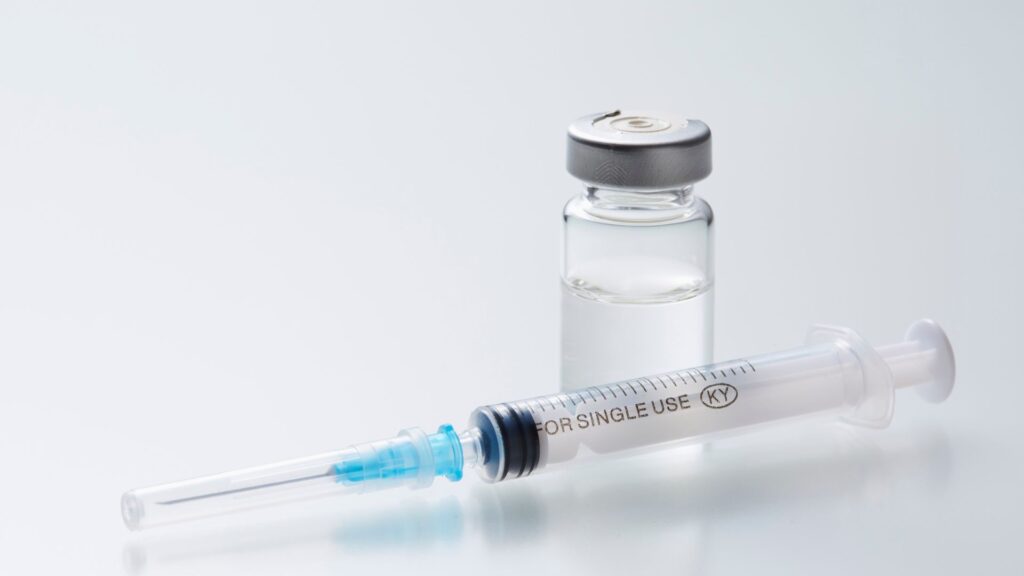In the journey toward recovery from substance use disorders, understanding your options can be a life-saving turning point. For individuals struggling with opioid addiction or alcohol dependence, Vivitrol treatment in Ohio is becoming an increasingly popular and effective choice. Vivitrol can increase treatment retention, lower cravings, and lessen your chances of relapsing.
In this article, you will learn:
- What Vivitrol is
- What to expect from Vivitrol treatment
- How Vivitrol works
- Where to find Vivitrol treatment centers throughout the state.
What Is Vivitrol Treatment in Ohio?
Vivitrol is the brand name for extended-release naltrexone, a once-monthly medication administered via intramuscular injection. Its active ingredient, naltrexone, is a non-addictive opioid antagonist. It works by blocking opioid receptors in the brain—those same receptors that substances like heroin, fentanyl, and alcohol stimulate.
By doing so, Vivitrol reduces cravings and prevents relapse by dulling the euphoric and sedative effects of addictive substances. It’s used as part of a medication-assisted treatment (MAT) approach, which combines medications like Vivitrol with behavioral therapies and support systems to address the psychological and physical aspects of addiction.
Who Is Vivitrol For?
Vivitrol is FDA-approved for individuals with opioid dependence who have completed detox. It is also approved for alcohol dependence, as part of a structured recovery plan.
Patients must be fully detoxed from opioids—typically 7–14 days—before receiving their first injection. Starting Vivitrol too soon can trigger severe withdrawal symptoms, including muscle aches, nausea, vomiting, and anxiety. The need for complete detox before initiating Vivitrol cannot be overstated.
The Role of Medication-Assisted Treatment (MAT) Programs
Medication-assisted treatment programs in Ohio often incorporate Vivitrol as one tool in a broader recovery framework. These MAT programs recognize that substance abuse is both a mental health and medical condition. By using medications like Vivitrol to stabilize patients, they can more effectively engage in counseling, build coping strategies, and develop a treatment plan tailored to their needs.
MAT isn’t about replacing one drug with another; it’s about supporting the brain’s healing process while creating the conditions necessary for long-term behavioral change and emotional growth.
Starting Vivitrol Addiction Treatment: What to Expect
Here’s what a typical Vivitrol treatment journey looks like in Ohio:
1. Assessment and Detox
Before initiating Vivitrol, patients undergo a full evaluation. This involves understanding the history of addiction, co-occurring mental health disorders, and determining whether the patient is medically and psychologically prepared for Vivitrol.
A complete detox from opioids is required. This means no opioid use (including Suboxone or methadone) for at least 7–14 days. For those with alcohol dependence, the detox period may vary, but it is still necessary to avoid complications.
2. First Injection
Once detox is confirmed, patients receive their first dose of Vivitrol—a 380mg injection in the gluteal muscle. It’s administered once every four weeks.
Most patients report minimal side effects, although some experience muscle aches, fatigue, or irritation at the injection site. These usually subside within a day or two.
3. Ongoing Monitoring
Medication-assisted therapy isn’t a “set it and forget it” solution. Patients will have regular check-ins with medical staff and counselors to monitor side effects, cravings, and emotional well-being.
Because Vivitrol blocks opioid receptors, patients should carry a medical alert card in case emergency pain treatment is required.
4. Therapy and Support
Most Vivitrol treatment programs in Ohio combine medication with therapy sessions, group counseling, and peer recovery coaching. This integrated approach addresses the root causes of substance use disorders, treats co-occurring mental health conditions, and builds the tools necessary to achieve sobriety.
Benefits of Vivitrol for Alcohol and Opioid Addiction
Vivitrol can provide patients in recovery from alcohol and opioid addiction with many benefits, including:
- Non-addictive- Unlike methadone or buprenorphine, Vivitrol does not cause physical dependence.
- Reduced cravings- By blocking the “reward” pathways of opioids and alcohol, Vivitrol helps reduce the compulsion to use.
- No daily dosing- A single injection every 28 days improves compliance and reduces the risk of misuse.
- Preventing relapse- Especially in early recovery, Vivitrol’s ability to eliminate the high can be a powerful deterrent.
- Improved focus on recovery- Patients often find they can engage more fully in therapy and rebuild their lives.
Vivitrol by the Numbers
According to the National Institute on Drug Abuse, nearly 2.7 million Americans struggled with opioid dependence in 2023.[1]
Alcohol use disorder affects more than 14 million adults in the U.S. each year.[1]
Studies show that patients taking Vivitrol as part of a structured program have a 90% reduction in relapse risk compared to those without medication support.[2]
Finding a Vivitrol Treatment Center in Ohio
Ohio is one of the states hardest hit by the opioid epidemic, but it’s also home to some of the most progressive treatment models in the country.
To make sure you are choosing the best program, make sure to ask each provider:
- Do you require a supervised detox before starting Vivitrol?
- Is behavioral therapy included in the treatment plan?
- Do you offer assistance with insurance or payment plans?
Vivitrol: Part of a Bigger Picture
Addiction recovery is not linear, and there’s no one-size-fits-all solution. Vivitrol treatment is one option among many, but for the right candidate, it can be a powerful tool in the path toward a fulfilling life free from addictive substances.
What sets it apart is its ability to provide biological stability—a quieting of the chemical chaos—so that individuals can rebuild relationships, restore their overall health, and take real steps toward long-term sobriety.
Get Connected to Medication-Assisted Therapy and Vivitrol Treatment
If you or someone you care about is struggling with addiction in Ohio, exploring Vivitrol treatment could be a pivotal next step. It’s not a cure, but it can be the foundation of a recovery journey that transforms lives. Talk to a licensed addiction professional, ask about medication-assisted treatment, and take that first step toward achieving sobriety—you don’t have to do it alone.
Contact Next Life Recovery today to learn more about our Vivitrol treatment program for individuals struggling with opioid or alcohol use disorder.
Frequently Asked Questions (FAQ) about Vivitrol Treatment in Ohio
1. Can I take Vivitrol if I’m also dealing with mental health issues like anxiety or depression?
Yes, many individuals with substance use disorders also experience co-occurring mental health conditions. Vivitrol can be used safely in conjunction with mental health treatment, including therapy and certain medications. However, it’s important to coordinate care between your addiction specialist and mental health provider to ensure medications do not interact negatively and your treatment plan is cohesive.
2. Is Vivitrol covered by insurance in Ohio?
Most private insurance plans, Medicaid, and Medicare in Ohio cover Vivitrol when it’s prescribed as part of a medically necessary treatment program. However, coverage can vary depending on the plan. Some programs also offer patient assistance or sliding scale fees. Always check with your provider and insurance company beforehand.
3. What if I miss a scheduled Vivitrol injection?
Missing a dose doesn’t necessarily mean you have to restart the process, but it’s essential to speak with your treatment provider as soon as possible. They may recommend rescheduling your injection quickly or adjusting your treatment plan. Delays can increase the risk of cravings and relapse, so consistent adherence is ideal.
4. How long should I stay on Vivitrol?
The duration of treatment varies depending on individual progress. Many patients continue Vivitrol for 6–12 months, though some benefit from longer use. The decision to stop should be made with your healthcare provider and often depends on factors like stability in recovery, support systems, and confidence in managing triggers without medication.
5. Can I drink alcohol while on Vivitrol?
Technically, yes—but it won’t produce the desired effects. Vivitrol blocks the euphoric impact of alcohol, making drinking far less rewarding. While it doesn’t make alcohol consumption physically dangerous, drinking while on Vivitrol defeats the purpose of the medication. Continuing to drink can also hinder psychological recovery and progress in therapy.
6. Are there alternatives to Vivitrol if I’m not a good candidate?
Yes. Other medication-assisted therapy options include buprenorphine (Suboxone) and methadone for opioid use disorder. For alcohol dependence, oral naltrexone or acamprosate may be considered. A comprehensive evaluation by an addiction specialist can help determine the most effective and appropriate option for your needs.
References:
- The Substance Abuse and Mental Health Services Administration (SAMHSA): Highlights for the 2023 National Survey on Drug Use and Health
- Wiley Online Library: Extended-release injectable naltrexone for opioid use disorder: a systematic review

